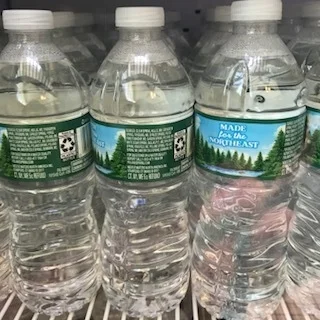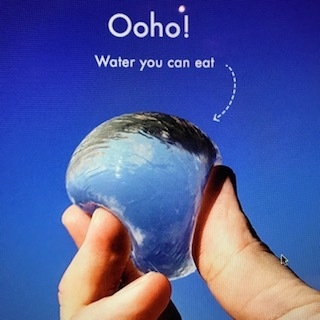I'm guilty of abusing the convenience of single use plastic — throwaway items like: water bottles that don't degrade; coffee cups, lids and stirrers; plastic wrap; and takeaway packaging. My carelessness stopped when I read this statistic: 5 seconds to make, 5 minutes to use, 500 years to break down.
Plastic was introduced as a way to save trees. Remember when there were biodegradable paper straws, plates, cups and bags? Looking back we have to wonder if plastic is an improvement. For example, almost all drinking straws are now plastic. We use them once then toss them!
Many ideas we consider advancements have unpredictable consequences. We continuously come up with new inventions — that’s a good thing — as long as we focus on healthy “continuing use” solutions rather than “single use" waste.
The volume of discarded plastic overwhelms landfills and recycling plants. Our highways and local streets are littered with single use packaging carelessly dropped by people in a hurry. We see sheets of plastic lifted by the wind and caught in tree branches. And sadly, much of our plastic refuse ends up in waterways. Across the world plastics make up 85% of beach litter with 12 million tons entering our oceans every year.
The problem is receiving global attention.
EUROPEAN UNION
Frans Timmermans, vice-president of the EU said: “If we do nothing to address throw-away plastic items, 50 years down the road we will have more plastic than fish in our oceans.” He announced that his commission is waging war against plastic waste as part of a plan to ensure that every piece of packaging on the continent is reusable or easily recyclable by 2030.
CHINA
The EU's plastic strategy follows China’s decision to ban imports of foreign recyclable material and is designed to modernize plastics production and collection by investing in research.
UNITED KINGDOM
Skipping Rocks Lab in London is a seaweed-tech startup. They created Ooho! the edible water bottle. It's spherical packaging made entirely of seaweed that's natural and biodegradable. Their goal is to create waste-free alternatives to plastic bottles and cups. Their proprietary material is actually cheaper than plastic and they say it can encapsulate any beverage including water, soft drinks, spirits, and cosmetics.
Natalie Fee quit her job to start REFILL, a campaign to make reusing your own drink container simpler than buying a new one. REFILL persuades businesses to allow people to refill their water containers on their premises.
“All we are doing is linking people who want water with businesses and organizations who have taps and are happy for them to be used.”
The campaign assures us that we are equally well hydrated by drinking local tap water as by water sourced from a tropical rain forest. Fee launched the REFILL Campaign in Bristol, England in 2015 and a couple of months later 200 businesses were signed up. REFILL hands out water-drop stickers to businesses to show people they are happy to offer them free water. There's even an app that tells you which nearby businesses are participating. The program has the backing of regional water companies and a grant from the outdoor clothing company Patagonia. Towns and cities everywhere are joining.
AUSTRALIA
In Australia, the drive to stop bottles from being thrown out after a single use has manifested in a growing number of WATER FOUNTAINS in public spaces that encourage people to refill their bottles.
Shopping malls, universities and other public spaces install water fountains with visible and convenient attachments made to refill bottles. There are websites and apps, showing people where they can find the fountains.
UNITED STATES
San Francisco became the first city in the US to ban plastic BAGS and place a 10-cent fee on paper bags. The plastics industry was successful in convincing Seattle voters to reject that same law in their city in 2008. Since then grocery and department stores throughout the US are voluntarily embracing the idea.
There's a global effort to address the problem of single use plastic. New ideas arise every day. Do we really need legislation to force us to do what is in our best interest? I had a conversation with some kids the other day and they immediately volunteered new behavior. What if all we need to do is investigate our highest values and honor them? Every living thing benefits — including us.
Sources: Theguardian.com, WSJ,com, Globeandmail.ca, Oohowater.com






